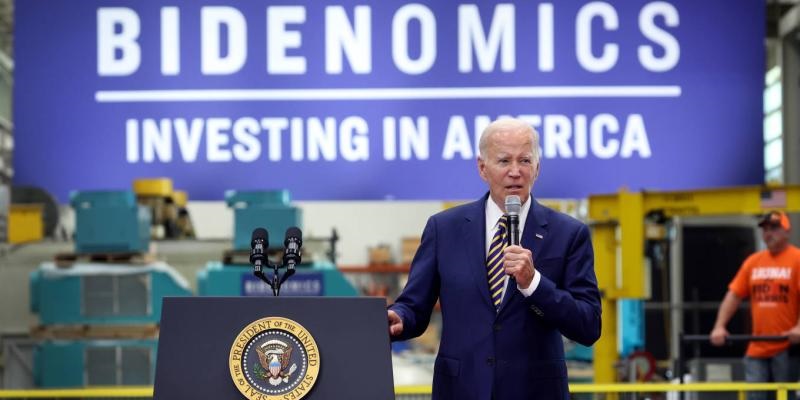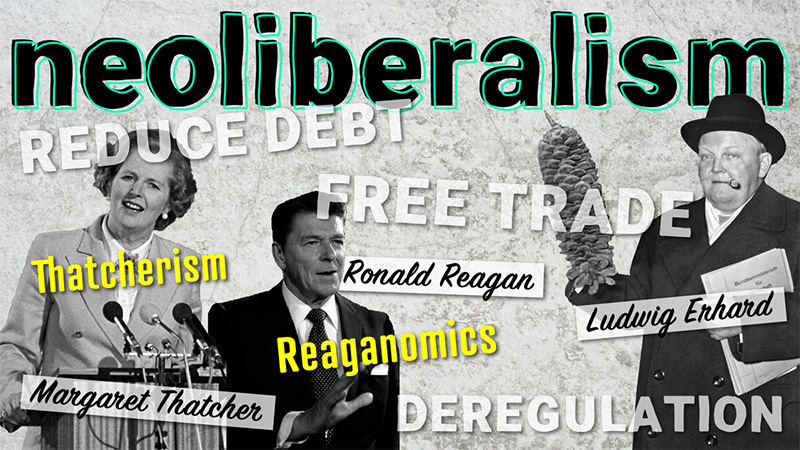 Photo: Project Syndicate
Photo: Project Syndicate
The neoliberal era is not ending in the US, because over the long term. US policy failures will have political consequences, writes Michael R. Strain, a ‘Project Syndicate’ observer.
The neoliberal era is not ending in the US, because over the long term, political success rests on a foundation of policy success, and the “post-neoliberal” policies embraced by Presidents Donald Trump and Joe Biden are not succeeding.
Trump broke with the bipartisan free-trade consensus to which his recent predecessors subscribed when he launched a trade war with China. The result was higher prices for consumers and fewer jobs for manufacturing workers. Lose-lose.
Biden has maintained and extended the Trump tariffs, and has embraced industrial policy to jumpstart domestic clean-energy innovation and semiconductor manufacturing. But substituting the judgment of politicians for the judgment of markets is meeting with predictable results: the US lacks the workforce needed to use these funds effectively. Moreover, other countries are retaliating, blunting the impact of the subsidies. The White House is tripping over itself, pursuing contradictory goals.
The steep tariff increases on Chinese goods that US President Joe Biden’s administration recently announced are just the latest in a long string of interventionist economic policies that fly in the face of decades of neoliberal orthodoxy. And the Biden administration is hardly alone: a growing number of governments, economists, and institutions are rethinking the free-market doctrine to which they long subscribed.
Biden’s $2 trillion economic stimulus, signed in March 2021, cast aside even a rhetorical commitment to fiscal responsibility. The inflation to which it contributed is a major headwind in his quest for re-election. Finally, Biden’s regulatory agenda rejects the consumer-welfare standard in competition policy in favor of a “big is bad” standard. This approach is chilling deal-making and persistently losing in courts.
The US is set to continue on this unproductive path, regardless of who wins the November election. Trump and Biden are trying to out-do each other on how high they can raise tariff rates, and one of Trump’s potential vice presidential picks argues that Federal Trade Commission Chair Lina Khan, responsible for antitrust enforcement, is the “best person” in the Biden administration. Meanwhile, Trump’s immigration proposals would cause severe economic damage.
These policy failures will have political consequences – not in 2024 apparently, but certainly in the coming years. Ironically, they will end up solidifying the consensus around the importance of free people and free markets.
 Pic.: ltkcontent.com
Pic.: ltkcontent.com
The past decade has brought a sea change in US economic policy, and not for the better. Fueled by illiberal populism, Democrats and Republicans alike have cast aside principles and commitments that guided policymakers for decades after World War II. Long-term prosperity is now in jeopardy, Michael R. Strain writes.
After decades of bipartisan consensus about the benefits of free trade, protectionism is becoming the new norm. It has gotten so bad that the leaders of both parties, Biden and Trump, recently objected to a staunch US ally investing in a US manufacturing company. Japan’s Nippon Steel wants to acquire US Steel in a transaction that would inject much-needed capital and technology into the iconic American manufacturer, increasing the productivity and wages of its workers and potentially increasing employment opportunities and steel output. Moreover, for every job in US steel manufacturing, there are around 14 jobs in steel-intensive industries. Those workers also could benefit, because higher productivity at US Steel would lower costs and could make steel-using domestic manufacturers more competitive.
Tit-for-tat industrial policies distort relative prices, slow productivity growth, and reduce household incomes over the long term. As more countries adopt subsidies, any benefits from them become blunted. Taxpayer money may as well be lit on fire.
It is no surprise that the rise of populism and economic nationalism has coincided with growing skepticism toward liberal democracy and growing comfort with political violence. The erosion of economic liberalism – free people, free markets, limited government, openness, global commerce – reflects a loss of respect for the choices people make in the marketplace. If we devalue choices made in markets, why wouldn’t we devalue choices made at the ballot box?
The economic-policy debate has become pessimistic and overly fearful. It is saturated by grievance and nostalgia for an imagined past. A better debate would focus on reviving and reinvigorating the principles and values that created decades of prosperity, both in America and abroad.
read more in our Telegram-channel https://t.me/The_International_Affairs

 9:53 16.06.2024 •
9:53 16.06.2024 •






















